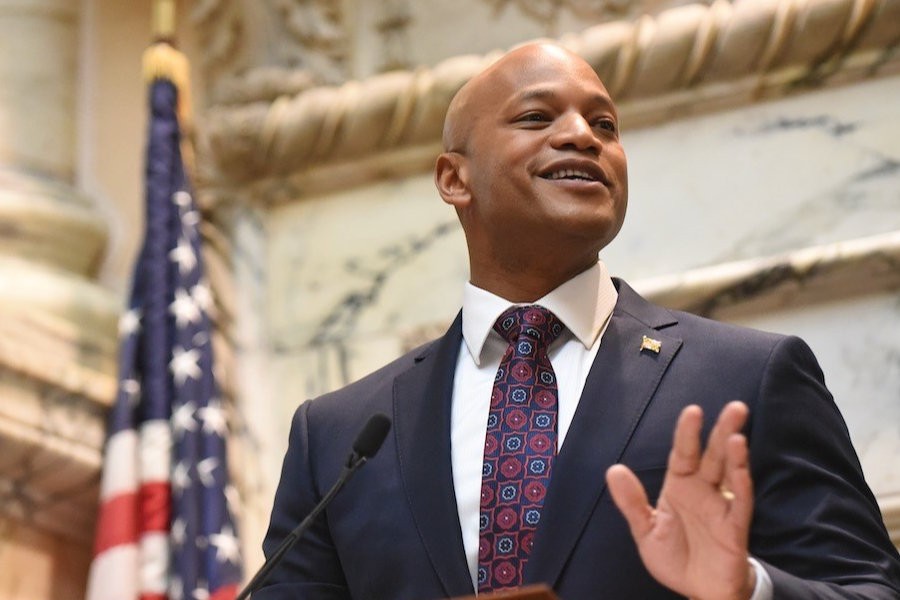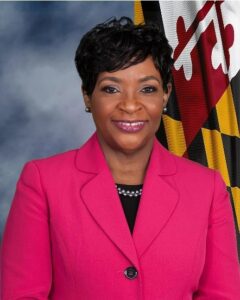Analyst: Maryland tax hikes would “rattle online sports betting sector”

Maryland Gov. Wes Moore (D) sent a jolt through Wall Street today when he proposed steep tax hikes on gambling in the Free State. Taxation of online sports betting revenues would be doubled from 15% to 30%, while casinos’ table game winnings would be levied at 25% rather than the current 20%.

Cautioned Deutsche Bank analyst Carlo Santarelli, “This is not a tax increase. It is a proposal. The agenda will now need to be legislated in committees, thereby likely making Speaker of the House, Adrienne Jones, a key figure in this process.” Jones, also a Democrat, represents the Baltimore area, home to two casinos.
Overall, Gov. Moore aims to achieve US$987 million in new revenues. Of that, US$95.4 million would be extracted from a higher online sports betting impost. Another US$31.3 million for the general fund would come from increased table game taxes.
Santarelli observed that the governor’s proposed budget makes no mention of igaming, which was expected to be a hot topic in the new legislature. The analyst pointed out that igaming tax receipts would eclipse the amount expected to be raised from online sports betting.
“We view the focus on increased taxes, as opposed to expansion, as something that is in line with our views, though likely disappointing for most,” Santarelli added.
Truist Securities analyst Barry Jonas was less circumspect, writing that he was “feeling crabby”. His January 15 note followed close on the heels of Santarelli’s.
Jonas warned, “We expected that 2025 would bring higher volatility to digital gaming stocks especially given this ever present risk. On the land-based side, we were not expecting this—with MGM National Harbor bearing the brunt of impact.”
Jonas countered that it was an outright negative for gaming stocks. He did allow that it could have been much worse in Maryland, citing New York State’s 51 percent levy on online sports betting.
“The greater risk, of course, is more states follow suit and explore higher gaming taxes,” Jonas reflected, although he noted that Marylanders could not vote on it until 2026. Tax hikes, he observed, require no such popular sanction.
Jonas found a silver lining: it could mark a step toward the legalization of igaming. He also felt DraftKings and FanDuel were best-positioned to weather any taxation storm.
Santarelli warned of a “broader overhang” of tax increases as states enter their respective budgeting cycles, to say nothing of one-off tax hikes that might be proposed, such as what Jonas called “rumbling” from Michigan and Louisiana.
Santarelli modeled a US$30 million tax hit on DraftKings’ cash flow from Moore’s plan. This was exceeded only by the US$58 million wallop he predicted FanDuel parent Flutter Entertainment would take. In the case of DraftKings, it would shave off 3% of 2025 cash flow, assuming the proposal had been implemented on 1 January.
BetMGM was modeled to see a potential US$13 million tax bill, costing the company US$7.9 million in cash flow. ESPN Bet would suffer a US$4.2 million bite and US$2.8 million less cash flow, while Caesars Sportsbook would pay US$4.6 million more and see US$2.6 million less.
Santarelli called table games tax increase “broadly immaterial” to Caesars Entertainment (operator of Horseshoe Baltimore) and Penn Entertainment (owner of Hollywood Perryville). But he conceded that it would cost MGM 1% of its regional cash flow, due to the impact on mega-resort MGM National Harbor, the company’s most lucrative regional casino.
Jonas quantified the National Harbor hit at US$16 million in cash flow. He posited that Hollywood Perryville and Ocean Downs (owned by Churchill Downs) would each be dented to the tune of US$1 million.
David McKee is an award-winning journalist who has three decades of experience covering the gaming industry.
Verticals:
Sectors:
Topics:




